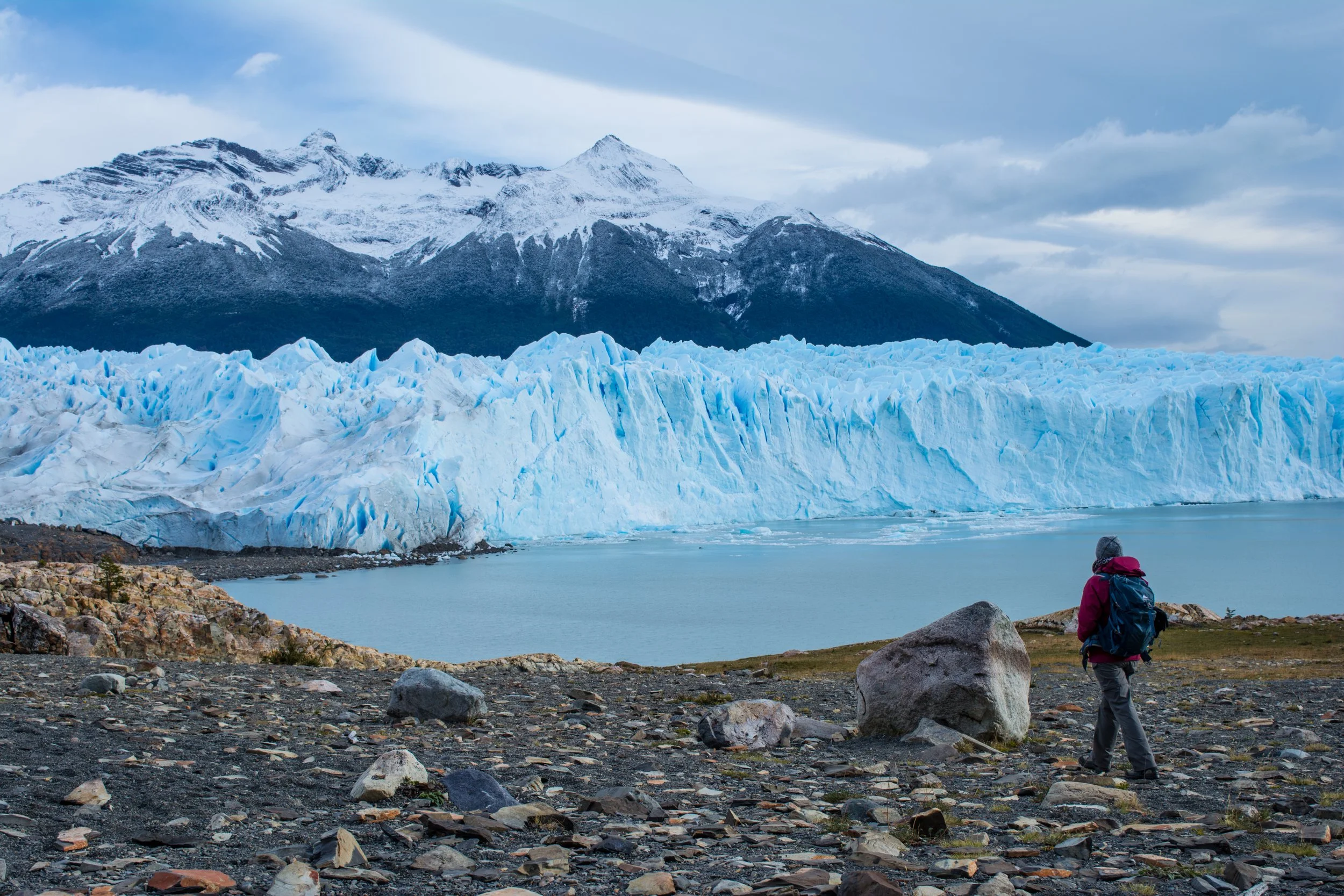Sustainable Travel: Why Eco-Friendly Holidays are Important
When it comes to eco-friendly travel and tourism, deciding where to stay is just as important as where you go and what you do. By opting for sustainable holidays and staying in eco-friendly hotels, travellers can enjoy meaningful trips while positively contributing to the places they explore.
Promoting sustainable tourism and eco holidays is not only important for preserving our planet but also aligns with consumer preferences, as hotel and other rental accommodation guests are willing to pay up to 75% more for an eco-friendly option. It makes sense, then, to consider the ways in which you can become a more sustainable hotel and learn how to become a more eco-conscious traveller.
In this article, we’ll review:
What a sustainable holiday is
Why sustainable holidays are important
The impact sustainable holidays and hotels can have on conservation
How to promote sustainable travel
Let’s examine why eco-friendly holidays and sustainable hotels are important contributors to sustainability within the travel and tourism industry.
Exploring Chile’s Perito Moreno Glacier
What are sustainable holidays?
The aim of sustainable holidays is to minimise the negative impacts on the environment by promoting travel in an eco-friendly way, leaving destinations undisturbed or improved by tourism.
Eco-travel and sustainable holidays prioritise and respect the destinations, people, and wildlife of those places. As the European Tourism Commission explains, “sustainable tourism is not a product, a niche, a market proposition or even a ‘form’ of tourism—all types of tourism can be made more sustainable.”
Sustainable holidays often benefit local cultures and communities and are increasing in demand, with 80% of travellers worldwide believing sustainable travel is important. Travellers are looking to experience new countries, cultures, and communities in ways that support sustainability, but it’s not just holidaymakers and tourists who contribute to sustainable tourism. As we know, there are many benefits of being a sustainable business, and the whole industry is changing attitudes and behaviours towards becoming more eco-friendly.
Why are eco-friendly holidays important?
Eco-friendly holidays are important because they promote responsible travel practices that minimise environmental impact, support local communities and can bring regeneration. As a result, sustainable experiences and holidays tend to be more meaningful and authentic because they involve genuine interactions with local cultures and environments. By choosing eco-friendly holidays and accommodations, travellers can contribute positively to conservation efforts, preserve natural resources, and engage in activities that promote cultural appreciation and respect.
Why are eco-friendly holidays important?
There's more to a sustainable holiday than simply choosing and booking eco-friendly accommodation. Both businesses and travellers must understand the bigger picture and broader practices associated with becoming more sustainable.
For businesses:
Embracing sustainability goes far beyond offering eco-friendly options. It involves adopting comprehensive strategies prioritising environmental conservation, social responsibility, and economic development within local communities. This includes implementing energy-efficient practices, reducing waste, managing water usage, supporting local suppliers and artisans, and engaging in community-based initiatives.
Sustainable hotels and businesses must also prioritise ethical considerations, such as respecting cultural heritage and wildlife protection. By understanding and implementing these practices, businesses within the travel and tourism industry can enhance their reputation, attract environmentally conscious travellers, and contribute positively to the preservation of natural resources and the well-being of local communities.
For travellers:
For travellers, booking a sustainable holiday and eco-friendly accommodation requires a mindset of responsible tourism that considers the environmental, social, and cultural impacts of travel. Travellers and tourists should engage in activities that promote environmental education and conservation, support local businesses and communities, and respect local customs and traditions. From participating in eco-friendly tours and volunteering in community projects to practicing responsible behaviours, such as reducing waste and conserving resources during their stay, there are various ways travellers can enjoy an eco-holiday whilst actively engaging and contributing towards sustainability.
The impact of sustainable holidays and hotels
The impact of sustainable holidays, hotels, and travel is far-reaching, making a positive difference to the environment and local communities.
Sustainable tourism supports environmental conservation by reducing carbon emissions, conserving water and energy, and protecting natural habitats, helping preserve the beauty of destinations and supports wildlife and biodiversity.
Not only this, but sustainable tourism also benefits local communities by boosting economic development and preserving cultural heritage. By supporting local businesses and engaging in authentic cultural experiences, travellers can contribute to the livelihoods and traditions of the people in the places they visit.
How to promote sustainable travel and tourism
We understand the challenges travellers can face when seeking truly sustainable accommodations and travel options, especially with the prevalence of greenwashing and hotels making false claims about their sustainability practices. This is why promoting sustainable travel and tourism is essential for businesses and travellers, ensuring genuine sustainability efforts are recognised and supported.
Here are some ways to embrace sustainability from both perspectives:
As a business:
Assess your carbon footprint: Calculating a business's carbon footprint helps to identify key areas for reducing emissions, such as energy use and supply chains. Businesses can then work to lower it by adopting energy-efficient practices, switching to renewable energy, and optimising operations. This will help the environment and improve brand reputation, reduce costs, and attract eco-conscious customers.
Embrace the 4Cs: The Long Run’s 4Cs framework—Conservation, Community, Culture, and Commerce—guides businesses in adopting sustainable practices. By focusing on environmental impact, ethical employment, cultural respect, and responsible business, companies can improve their sustainability, benefit local communities, and ensure long-term profitability while positively impacting the planet.
Transparent Reporting: Monitoring and reporting sustainability activity demonstrates a genuine commitment to sustainability and accountability. By publicly sharing achievements and reports, hotels and businesses can enhance their reputation as an eco-friendly company and in turn, attract eco-conscious travellers. A sustainability manager can help promote business sustainability by keeping on top of performance data, collating and managing insights to report progress towards sustainability goals.
Collaboration: By working with environmental organisations and non-profits, hotels can support conservation and community projects to raise awareness about these projects.
As a traveller:
Choose eco accommodations: Travellers can look for eco-friendly hotels, lodges, or guesthouses that prioritise sustainability, checking for green certifications and practices like energy and water conservation, waste reduction, and use of eco-friendly products.
Focus on hyper-local: By focusing on nearby activities and accommodations, travellers can significantly reduce their carbon footprint while directly supporting local businesses. From charming family-run guesthouses to local artisan eateries, hyper-local holidays celebrate the essence of regional areas and offer a genuine and authentic taste of the community's culture and traditions.
Reduce carbon footprint: Opting for low-impact transportation like trains, buses, or bicycles instead of flying can help reduce carbon footprint. By exploring destinations on foot, by bike or by public transport, travellers can minimise emissions and support local transportation options.
Respect local cultures: It’s important travellers learn about the local culture, customs, and wildlife of the place they are going to. Respecting traditions, avoiding activities that harm wildlife or exploit animals, and supporting local artisans by buying authentic souvenirs can all contribute to a more sustainable holiday.
Mindful tourism: Travellers can be responsible tourists by minimising waste and conserving resources during their stay. Using reusable items like water bottles and bags, turning off lights and AC when not needed, taking your flat batteries home with you to be recycled at an e-waste facility, and choosing businesses that prioritise sustainability.
Choose sustainable activities: Opting for tour operators and guides that practice and promote environmental conservation and responsible tourism. Travellers should seek out eco-friendly tours and experiences that focus on wildlife protection, nature conservation, and cultural awareness. Hyper-local activities, tours and experiences encourage travellers to immerse themselves in authentic local culture and communities.
By adopting genuine sustainable practices, hotels and businesses within the travel and tourism industry can attract more environmentally conscious guests and likewise, as travellers, educating ourselves about sustainable tourism and making responsible choices can contribute to positive environmental impacts and authentic experiences during our travels.
To find out more about how The Long Run can help support your business in reaching its sustainability goals, get in touch at info@thelongrun.com


